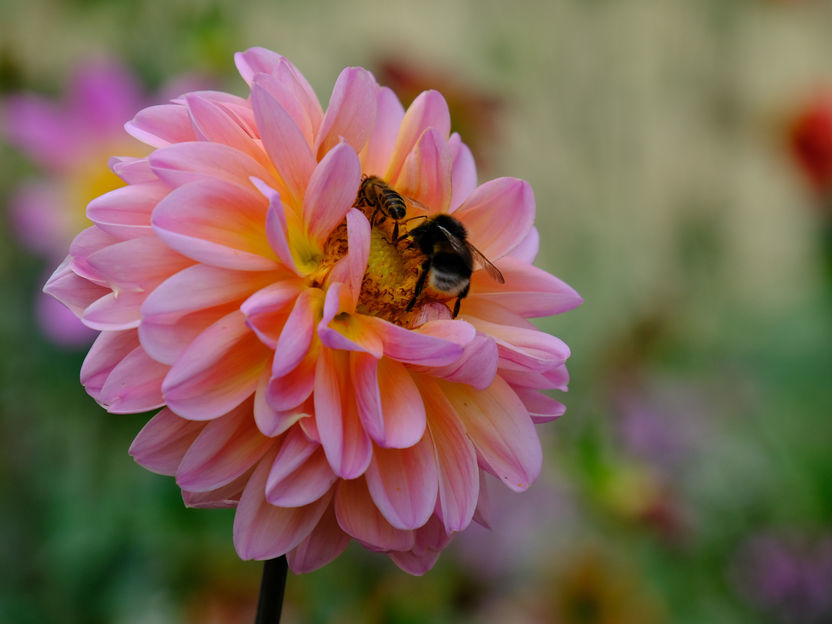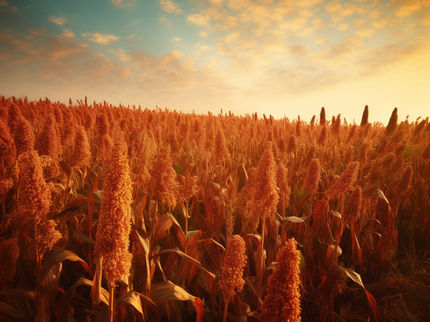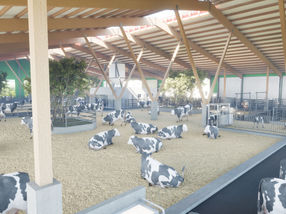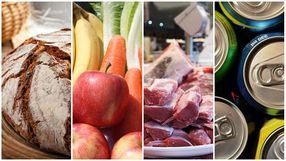Pollination by insects: Economic benefit probably much higher than expected
The economic benefit of animal pollination work amounts to 1 trillion US dollars worldwide
Advertisement
A trillion US dollars or about one percent of the world's gross national product is worth the work of animals, especially insects, in pollinating flowers. This enormous value is the result of a new simulation study carried out by scientists at the University of Hohenheim in Stuttgart. In Germany alone, society would lose an average of around 3.8 billion euros if all pollinating insects were to be lost. The details of the study can now be read in the journal Ecological Economics.

The economic benefit of pollination of animals, especially insects, amounts to an average of 3.8 billion euros per year in Germany and 1 trillion US dollars worldwide. These are the results of a new simulation study by scientists at the University of Hohenheim.
Manuel Narjes
Our world would look very different if it weren't for the fact that day after day, countless numbers of animal helpers carry pollen from one flower to another, thus fertilizing them. Only then would many plants be able to produce fruits and seeds that not only serve our nutrition but also their natural reproduction and contribute to the greening and blooming of nature.
In Germany and Europe, it is mainly bees, but also beetles, butterflies and other insects, that carry out this pollination work. In tropical latitudes, however, bats and hummingbirds also play their part.
A new estimate by three scientists at the University of Hohenheim now shows how important their contribution is in the production of food. They used various model calculations to simulate the effects that the sudden loss of all pollinating animals would have on consumer benefits in Germany and worldwide.
New valuation approach better reflects the real value of pollinator performance
Prof. Dr. Christian Lippert and Dr. Manuel Narjes from the Department of Production Theory and Resource Economics in Agriculture and Dr. Arndt Feuerbacher from the Department of Agricultural and Food Policy propose a new valuation approach: "Until now, such estimates have been calculated on the basis of assumptions regarding the long-term adaptation of agricultural systems. In our view, however, this is not correct because the long-term adaptation reactions of both agroecosystems and supply and demand are not foreseeable", explains apl. Prof. Dr. Lippert.
"We have therefore only simulated the economic loss for the year immediately following the hypothetical failure of all pollinators, because other mechanisms would then take effect and make up for some of the loss. In agriculture, for example, more self-pollinated and/or wind-pollinated varieties could be cultivated," he continues.
"To a certain extent, farmers can compensate for lower yields through higher prices. But the consumer will lose out in any case, as he has to pay the higher prices. Therefore, in any case, most of the economic loss would have to be borne by the consumers."
Lower agricultural yields change prices and consumer behavior
Already known dependency factors were incorporated into the simulations. These indicate the proportion of the yield attributable to animal pollination for different crop species. In the case of apples and cherries, for example, an average of around 65% of the yield is due to pollination by animals, and in the case of some plants such as pumpkins the figure is as high as 95%, while cereals such as wheat and rice are wind or self-pollinators and do not require cross-pollination.
A sudden loss of all pollinators would result in crop failures, agricultural yields would fall and, as a result, prices would rise - until the reduced supply and the demand match again. Consumers lose twice as much because they now get less fruit and vegetables and because they have to pay more for the remaining quantity.
"For Germany, we were able to rely on published estimates of demand response," explains Dr Feuerbacher. "However, since the dependency factors given in the literature are subject to a wide range of fluctuation, we have carried out simulations of possible yield losses - based on assumptions about their probabilities - in order to determine a fluctuation range for consumer losses". On average, the simulations result in the aforementioned 3.8 billion euros. This annual amount would mathematically suffice to finance agri-environmental programmes promoting biodiversity on half of Germany's agricultural land.
Ecological damage even much higher
"Of course, we cannot cover all the ecological effects of such a catastrophic event on the environment and mankind that go far beyond the mere damage caused by a lower yield," Dr. Narjes emphasizes. "But such estimates can raise awareness of the importance of intact ecosystems and thus contribute to the preservation of biodiversity.
Note: This article has been translated using a computer system without human intervention. LUMITOS offers these automatic translations to present a wider range of current news. Since this article has been translated with automatic translation, it is possible that it contains errors in vocabulary, syntax or grammar. The original article in German can be found here.


































































